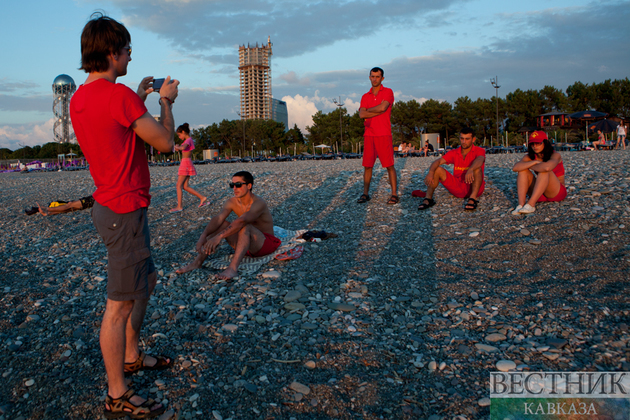A proposal to add another public holiday in Georgia failed in parliament, but succeeded in setting off a wide discussion about whether workers in the country are treated too indulgently or if, instead, they are worked too hard.
Eurasianet writes that the bill would have made June 1, Child Protection Day, a day off. Georgia is among dozens of countries that have marked the day since the Soviet era, though few countries (Romania, for example) have it as a day off. It would have been the 18th public holiday on the Georgian calendar, and for the head of the parliament’s committee on health and social affairs, that was too much.
“We have the top number of holidays among European countries, the maximum,” the lawmaker, Dimitri Khundadze, said in a discussion of the proposal. “Other countries have far fewer [days off], we can’t take any more time to rest.” The bill failed to get out of committee, but the news that Georgia got more time off than many Western countries – to which many Georgians look up as models of development – inspired much self-deprecating humor on social media. The furor kicked off when Business Media Georgia, a media outlet covering the economy, posted statistics comparing the number of Georgian official holidays with those of other countries.
“Watch out, do not get too tired,” one user commented sarcastically.
“This is one of the directions the prime minister probably had in mind when he bragged that we are ahead of many leading European countries,” another commented.
But many social media users hit back at the post, which they saw as a prejudicial attempt to portray working-class Georgians as lazy. They argued that the high number of holidays was an inaccurate representation of a grim reality that Georgian workers face compared to their European counterparts.
“For us simple people, there is a different calendar and a different reality,” one commenter wrote.
“When you compare yourself to Europe, then also compare how people rest there, what rights workers enjoy, how they take leave, etc.,” another user commented. “They don’t need official holidays in Europe, they are resting there anyways.”
Others argued that a high number of vacation days was a measure of development. “In fact, more days off is part of standards on human rights and labor freedom set by the International Labor Organization,” wrote Ilia Lezhava, vice president of the New Union of Railway Workers on one of the social networks in response to the social media frenzy. Lezhava is among some who have been advocating making May 1, International Workers’ Day, a day off in Georgia as it is in many European countries.
The treatment of workers in Georgia has increasingly come under the spotlight, as the country has seen a marked increase in strikes since 2021. New labor laws passed in 2020 set more specific limits for the workweek (40 hours for most, 48 in special cases) and rest time, and required overtime to be paid extra. They also introduced stronger measures against discrimination against workers and significantly increased the powers of the Labor Inspectorate, a body tasked with enforcing labor laws.
But there are numerous gaps in the legislation, and many other conditions for workers remain dire: the minimum monthly wage has remained a mere 20 lari [$7] since the 1990s, and many Georgians work multiple jobs, making the new reforms less applicable to them.
The new laws also don’t help the country’s large informal sector, representing 29 percent of non-agricultural workers, according to official data. And more than 19 percent of the Georgian workforce was unemployed in the first quarter of 2022.
Many in Georgian business circles and government, meanwhile, believe that an unwillingness to work is part of the problem. One of them is Prime Minister Irakli Garibashvili. “The current social policy makes the socially vulnerable labor force inactive,” Garibashvili said in February as he rolled out an ambitious new program to push Georgians who get state welfare into public works or other employment projects. “Two hundred thousand citizens capable of work are not engaged in building our country, do not participate in the economy, and are absolutely demotivated to find legal employment,” he said.
The program, which launched in March, requires workers who now get welfare to either take a state-provided 300 lari-per-month job, find another job or enroll in job training – or face more regular eligibility checks to continue to get assistance. For other unemployed or underemployed Georgian workers, the government has been trying to get them jobs outside the country. Last year, the government launched a program to help Georgians get legal blue-collar and care work abroad.






